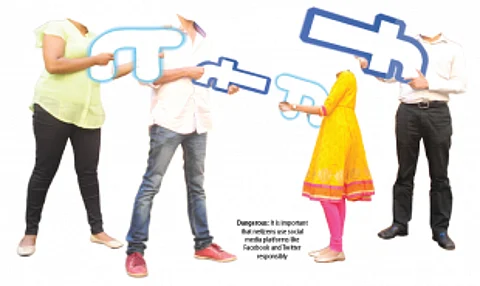

The Jasleen Kaur incident sparked a heated debate in India for reasons more than one. The initial outrage was against the man that she accused of harassing her sexually, after she posted her incident on Facebook. She reported the incident to the police but also uploaded a picture of the man, which has since been shared more than 1,30,000 times. Unusually, the Delhi Police, which has been rather infamous thanks to its failure in controlling the increasing crime rate against women in the capital city, acted on Jasleen’s post and arrested a man, Sarvjeet Singh, charging him with sexual harassment, criminal intimidation, and insulting the modesty of a woman, according to local reports. News channels initially commended her boldness and the chief minister of Delhi and Aam Aadmi Party (AAP) leader Arvind Kejriwal was quick enough to praise her “bravery”. While the public mood initially seemed to be in Jasleen’s support, things soon took a drastic turn and then came a twist in the story. The alleged harasser, Singh, who has been released on bail, denied the allegations and went public too, to accuse Kaur of courting publicity and using the incident to further her own political causes.
Much like the photo that Kaur had posted to shame Singh, photos and screenshots began to circulate online showing Kaur at AAP events, and the debate over the issue quickly broke down into political camps. This incident comes at a time when a similar incident involving the Rohtak sisters is still afresh in the minds of the people. A still from a video of two sisters beating up three men who allegedly harassed them on a bus was one of the many videos showing alleged harassment that have gone viral in India recently. It was later observed that the sisters had a penchant for entering into fights with boys. Soon enough, in February this year, the sisters failed the polygraph test thereby validating the latter theory.
The rise of the use of social media to name and shame alleged sexual harassers in particular has coincided with the brutal rape and murder of a student on a bus in 2012, a case that brought the issue of sexual violence in India to international attention. Amanda Fernandes from Panjim says, “Young men and women who may not be familiar with the rules on how to file a police complaint decide to post on Facebook or tweet to seek justice. But they forget that a tweet is not a proof. The police might take action but one cannot know for sure if it is the right action. Justice depends on what happens if and when these cases reach the courts.”
Roshni Adpaikar from Aldona feels that, “feminism is a movement for equal rights and girls like Jasleen Kaur are hurting feminism by misusing those rights. Crime has no gender and it’s high time we stop generalising that the culprit will be the guy all the time. Girls like Kaur should not make it difficult for other girls just for their publicity.” Commenting on a more appropriate step to take, Niranjan Purohit from Ponda says, “I don’t know about the rest of India, but I think the cops in Goa are quite efficient. I think the best thing to do is to file a complaint in case of an untoward incident like sexual harassment and have faith in the system to deliver justice to the complainant. Shaming the alleged culprit on social media would be akin to delivering mob justice.”